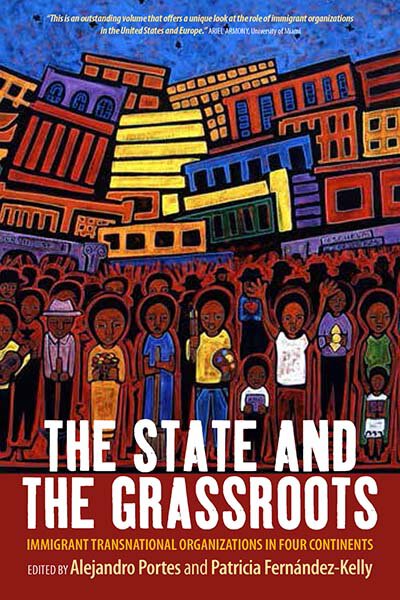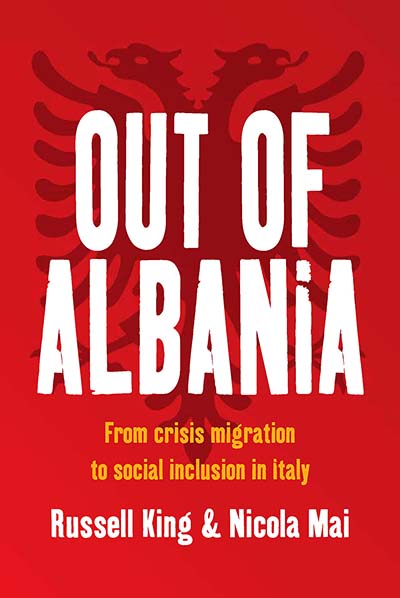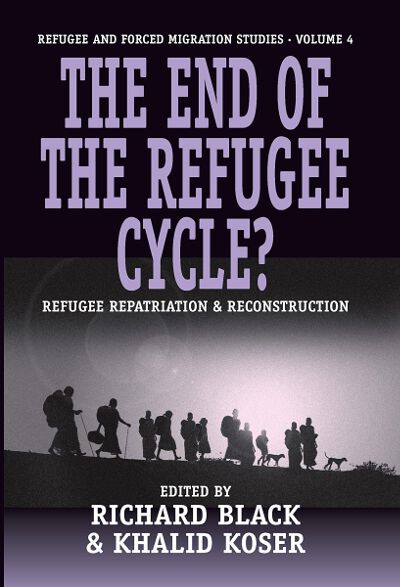
Email Newsletters
Sign up for our email newsletters to get customized updates on new Berghahn publications.
Capricious Borders
Minority, Population, and Counter-Conduct Between Greece and Turkey
Olga Demetriou
240 pages, 21 figures, 5 tables, 3 maps, bibliog., index
ISBN 978-0-85745-898-8 $135.00/£104.00 / Hb / Published (April 2013)
ISBN 978-1-78533-754-3 $34.95/£27.95 / Pb / Published (November 2017)
eISBN 978-1-83695-920-5 eBook
Reviews
“Demetriou explores this dynamic of minoritization in a series of brilliant ethnographic chapters… [Her] attentiveness to the social, spatial, material, and administrative articulation of the ‘minority’ as an object of biopolitical concern and state conduct makes this an important text for scholars interested in dynamics of minoritization well beyond the regional context of Southeast Europe that is the focus of her analysis.” · Journal of the Royal Anthropological Institute
“The theoretical potential unlocked by focusing on mundane, everyday counter-conduct is what makes Demetriou’s book relevant not only for scholars interested in Muslim minorities in Greece or the Balkans more generally but also anyone dealing with notions of community and how these are made, unmade, and remade in the interaction of political power and people’s lives.” · Insight Turkey
“Olga Demetriou offers a fascinating examination of borders and border politics in Western Thrace, a politically significant and historically complex border region in Northern Greece… Through beautifully written ethnographic passages and careful analysis, Demetriou offers a sophisticated examination of how difference is experienced, made, managed, and deployed in everyday moments by communities and individuals, with and against state minoritization practices and strategies… [It] is immensely interesting and insightful.” · PoLAR: Political and Legal Anthropology Review
“…a book that is well placed to become an essential reading for anyone interested in the study of borders, minority rights, Greek-Turkish relations and politics in South-eastern Europe more broadly. Western Thrace is a region that is constantly undergoing political, spatial and demographic transformations and Demetriou already highlights in the conclusion and postscript new sets of questions that may guide future research.” · The Cyprus Review
“This analytically vigorous and meticulously researched study forms an extremely valuable contribution to the literature on Western Thrace and beyond. Demetriou’s analysis of the minority condition is useful, after all, in understanding also many aspects of the majority condition, past and present, without relying on abstract generalizations. Demetriou opens up her case study to much broader methodological questions by carefully examining its specificities.” · Journal of Modern Greek Studies
“…this book achieves an immense evocation and provocation. We are privileged to have the resource of such a rich, theoretically robust ethnography. It bears critical lessons not only for all students of the Balkans and southeast Europe, but for all scholars of modern sovereignty, contemporary governmentality, and their discontents.” · Southeastern Europe
“This book is well-conceived, coherently structured, beautifully written and analytically sophisticated. It is a thoughtful, insightful and persuasively argued account of how through marriage, land transactions, naming, etc., the traces of the state underpin the construction and production of ‘minority’.” · Hastings Donnan, Queens University, Belfast
“This is a truly excellent ethnography of the complexities of identity and existence for Turkish-speakers of Northern Greece. It is meticulously researched, thorough and immensely interesting in its exposition of the conflicted subjectivities of the Turkish minorities of contemporary Greece… a much needed, crucial contribution to the anthropology of south-eastern Europe, the anthropology politics, states and nationalism, and of ethnicity, identity, and subjectivity.” · Yael Navaro-Yashin, University of Cambridge
“This is an excellent piece of ethnographic writing on the anthropology of border regions. It refers to the area of Thrace in the Northeast Greek-Turkish borders. It is a rare example of a non-partisan account of daily life among ethnic minorities in Southeastern Europe.” · Eftihia Voutira, University of Macedonia
Description
Borders of states, borders of citizenship, borders of exclusion. As the lines drawn on international treaty maps become ditches in the ground and roaming barriers in the air, a complex state apparatus is set up to regulate the lives of those who cannot be expelled, yet who have never been properly ‘rooted’. This study explores the mechanisms employed at the interstices of two opposing views on the presence of minority populations in western Thrace: the legalization of their status as établis (established) and the failure to incorporate the minority in the Greek national imaginary. Revealing the logic of government bureaucracy shows how they replicate difference from the inter-state level to the communal and the personal.
Olga Demetriou is a social anthropologist based at the Cyprus Centre of the Peace Research Institute Oslo and teaches at the University of Cyprus. Apart from Capricious Borders she has also authored Refugeehood and the Post-Conflict Subject and co-edited, with Rozita Dimova, The Political Materialities of Borders.




